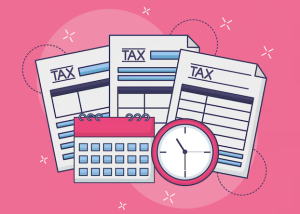The tax declaration period can be a daunting time for many Australians. However, with the right strategies, it can also be an opportunity to maximise your tax benefits. By understanding the nuances of the Australian tax system and employing effective tactics, individuals can potentially reduce their tax liabilities and secure greater returns.
Whether you’re an individual taxpayer or a business owner, there are several proven approaches to ensure you’re making the most of the benefits available. This article will explore key strategies to enhance the efficiency of your tax declaration process and optimise the benefits you’re entitled to.
Understanding your deductible expenses

One of the most effective ways to maximise your tax benefits is understanding what expenses are deductible. Deductible expenses can significantly reduce your taxable income, thereby lowering your tax bill. In Australia, various deductions are available, including work-related expenses, self-education costs, and donations to registered charities.
Familiarise yourself with the types of deductions relevant to your situation by consulting the Australian Taxation Office’s (ATO) guidelines. Proper record-keeping is essential. Maintain receipts and documents throughout the year to substantiate your claims during the tax declaration period.
Professional advice can be invaluable when it comes to understanding deductions. A tax accountant can offer tailored advice based on your unique financial situation, ensuring you don’t overlook potential deductions. Engaging a professional doesn’t mean you’re avoiding the responsibility of understanding your tax obligations; it simply ensures you’re making informed decisions.
Additionally, consider pre-paying deductible expenses before the end of the financial year. This strategy can be particularly beneficial for individuals expecting a higher taxable income in the coming year. By bringing forward certain expenses, you can mitigate the impact of higher tax rates, thus effectively managing your financial commitments.
Leverage offsets and rebates
Tax offsets and rebates are another important aspect of tax planning. Offsets directly reduce your tax payable, offering more significant savings than deductions, which merely reduce your taxable income. In Australia, there are numerous offsets available, such as the low and middle income tax offset and private health insurance rebate.
The Australian tax system also provides certain concessions for senior citizens. If you’re a senior or pensioner, you may qualify for specific rebates, such as the seniors and pensioners tax offset (SAPTO), which can be a great advantage during the tax declaration period. Thoroughly researching and understanding eligibility criteria and application processes is crucial to effectively leverage these offsets.
Claim depreciation benefits
For individuals and businesses owning income-generating assets, claiming depreciation is an effective method for reducing taxable income. Understanding how to calculate and apply depreciation schedules can result in substantial savings. Tangible assets such as machinery, vehicles, and even buildings are eligible for depreciation claims.
Small businesses in particular can benefit from the instant asset write-off scheme. This initiative allows businesses to write off the full cost of eligible assets up to a certain threshold, providing immediate tax relief. Regularly assess your asset pool and keep abreast of legislation changes to capitalise on these deductions.
Being aware of the potential tax advantages of depreciation ensures that you’re not leaving money on the table when it comes to your tax obligations. Proper financial planning includes scheduling asset purchases strategically to align with fiscal benefits, ensuring a consistent and predictable advantage come tax filing time.
Self-education for savvy taxpaying
Educating yourself about the tax system is one of the most empowering strategies to maximise your tax benefits. While professional advice is crucial, having a foundational understanding of tax regulations will enhance your decision-making ability and rightfully equip you to handle your financial matters.
Numerous resources are available for those looking to deepen their understanding. The Australian Taxation Office offers a wealth of reliable information, including webinars and newsletters that provide updates on tax laws and policies. Stay informed about changes each financial year to ensure compliance and the ability to claim all permissible benefits.
Networking with other professionals and attending industry seminars can also prove beneficial. Sharing experiences and strategies with peers can provide new insights into tax planning that you may not have considered previously. Being proactive and continuously learning will ultimately ensure you are well-prepared during the tax declaration period while maximising your financial outcome.
Engage in strategic record-keeping
Excellent record-keeping is the backbone of any successful tax strategy. It not only ensures compliance but also enables you to effectively claim the full range of deductions and rebates you’re entitled to. Developing a systematic approach to organising documents throughout the year will reduce stress during the tax declaration period and aid in the accuracy of your lodgements.
Digital tools, such as accounting software and mobile apps, can significantly simplify the record-keeping process. These technologies allow users to store receipts, track expenses, and categorise financial transactions with ease, providing an accessible and structured framework for tax reporting.
Regularly reviewing your financial records helps identify trends and areas for optimisation. Whether it’s tracking subscription fees or monitoring interest on loans, regular oversight ensures you are aware of all potential claims and adjustments needed to maximise your tax benefits.



